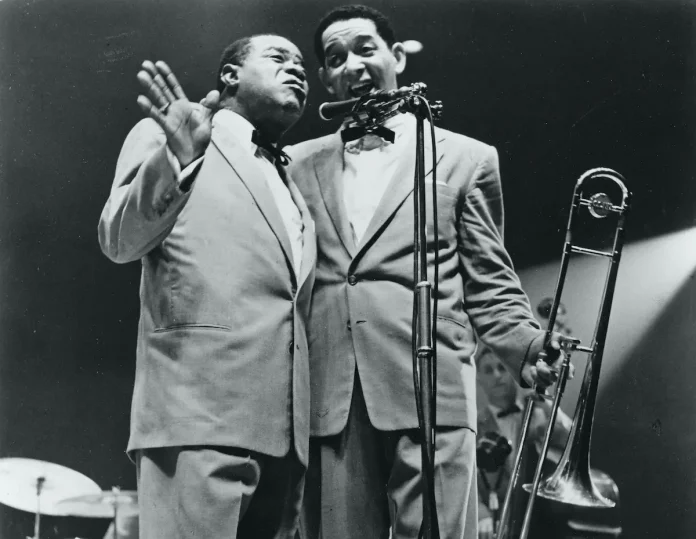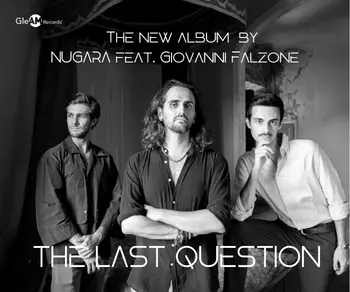Zoe Pia & Tenores Di Orosei Antoni Milia: Indindara (Losen Records LOS2882)
Many of the albums sent to JJ for review incorporate different strands of music, the justification being that, historically, precedents are being followed, that over time jazz has evolved by accommodating and using other forms of music as a natural progression. Many, however, seem to depart radically from the established parameters.
The sleeve notes here tell of “perfect blending of elements which might appear in contrast….not only jazz, electronic, ethnic or ancestral”. Sounds promising, but the difference is very apparent and it’s a recording which sits more readily in the area of World Music.
Zoe Pia uses percussion, occasional electronics, clarinet and launeddas, a Sardinian woodwind instrument of three pipes with a single reed – two chanters and a drone. Some of the tracks have her leading, but the overall emphasis is on the vocal group, with her providing support. Back in 1977, the Black Saint record label released The New Village On The Left by bassist Marcello Melis, with fellow jazz musicians Enrico Rava, Roswell Rudd and Don Moye. It intriguingly included Gruppo Rubanu, a Sardinian singing group, but the extent to which they were used was more limited than here, and was an adjunct to the jazz content.
The vocal group dominates throughout this album, and there’s no denying the technique and skill involved. Singing in the traditional Sardinian way, they vary the harmonies in a type of throat singing, a distinctive guttural, harsh sound – vocal gymnastics for the larynx. The lyrics are in Sardinian, so I can only go on the textures and blends of sound between the voices and the instruments played by Pia. This works within the framework of the music and it’s immediately arresting and potent, but I found after several tracks, a little goes a long way.
The recording quality is good, clear and precise but will no doubt be of greater interest for students of the human voice or those who follow current trends in ethnic music.
Marcina Arnold: Evolution (Mouthy Music Records)
Not too many albums start with the voice of Tony Benn, and when it segues into the social message of Say No, it immediately looked propitious, especially with the controlled and attractive trombone of Trevor Miles. However, there’s a strong essence of smooth jazz on several of the tracks, which I found slightly off-putting and stylised, especially with the backing vocals, but there’s plenty elsewhere that catches the attention. Evolution has elements of this but its changes make it more interesting, although Mussinghi Brian Edwards’ tenor solo is disappointingly restricted by the orchestration.
The lively and direct Inside Me has nicely arranged brass riffs and the saxophone of Jason Yarde, who crops up elsewhere – not least on Somebody Cares. Here the close brass and drumming laid down by Tom Skinner is reminiscent of bygone ska days, and it ends with a poem by South African Eugene Skeef.
Eric Appapoulay’s guitar sets down a suitable Spanish tinge on Barcelona, a voyeuristic recitation and meditation on the ordinary habits of two of that city’s prostitutes. Byron Wallen’s muted trumpet seems to echo from a distant apartment, whilst he contributes a soaring open horn on the funkier Burning.
By contrast, My Time is engaging in its simplicity, Arnold accompanying herself on slide guitar, with Appapoulay’s bass in tandem. Similarly, the final track Thirst, where it’s just her and her piano.
Louis Armstrong: Plays W. C. Handy (20th Century Masterworks 350283)
General opinion has been that by the 1950s Armstrong had lost much of his spark, that much of his work was uninspired. Of course, the bar had been set high by his earlier playing and things had changed in jazz as he veered towards safer territory, often influenced by commercial interests, and surrounded himself with lesser players.
However, it’s also considered that this album, recorded in 1954, was an indication that he’d lost none of his fire. In fact, many see it as essential in any collection. Even the controversial critic Max Harrison singled it out for praise, after noting “For a long period (Armstrong) had to contend with such burdens as Trummy Young’s grotesque trombone playing and Barrett Deems’ leaden drumming.” There are occasions here that might corroborate this. Young verges on the raucous on St. Louis Blues as do his interjections on Long Gone John, but elsewhere on the album he acquits himself well. The solos on Ole Miss Blues and Chantez Le Bas bear this out. Armstrong also has Barney Bigard on board, who plays and supports consistently, the perfect foil.
Velma Middleton sings on several numbers, the pick being Hesitating Blues. So does Armstrong himself, of course, but it’s his clear trumpet attack that stands out, full of power and intent. Just listen to his solos on Beale Street Blues and the extended St. Louis Blues.
The 20th Century Masterworks pressing is good and the sound quality excellent, something that needed to be addressed in earlier issues of the album.




